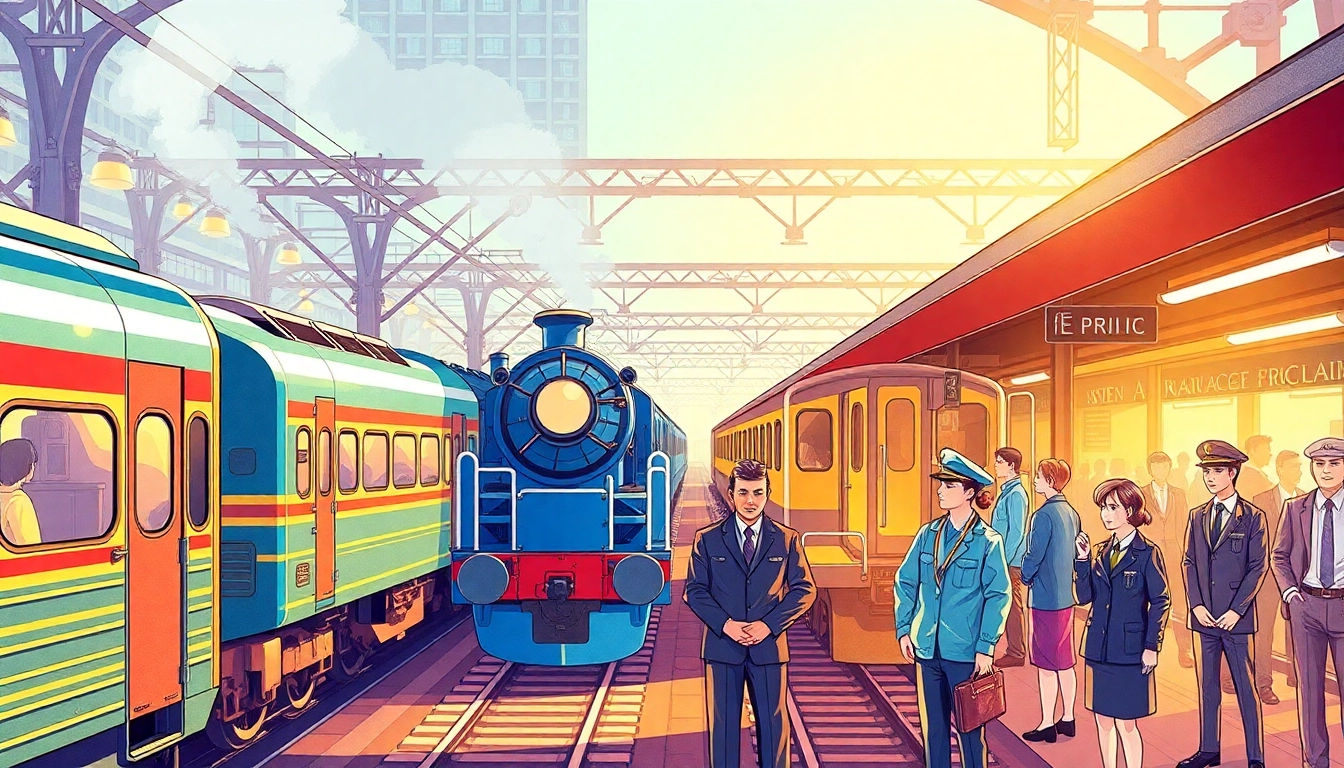Understanding the Significance of Railway Jobs in 2025
Railway jobs have historically been one of the most sought-after government employment opportunities in India. Known for their stability, attractive salary packages, and generous allowances, these positions offer a sense of security and a promising career path for millions of aspirants. As we step into 2025, the railway sector continues to expand, recruiting thousands through various regional and national-level examinations. The importance of railway jobs is underscored by the sheer scale of operations, the diverse nature of roles, and the strategic importance of Indian Railways in national infrastructure. With ongoing modernization projects, technological integrations, and infrastructural upgrades, railway jobs are not only staying relevant but are also evolving with emerging technological trends.
Current Trends in Railway Recruitment
The year 2025 has seen a notable surge in railway recruitment activities, driven by government initiatives to modernize the railway network and increase employment. The Railway Recruitment Boards (RRBs) and Railway Recruitment Cells (RRCs) have announced over 13,200 vacancies across numerous zones for various posts, including technical, non-technical, and administrative positions. These recruitments focus on enhancing operational efficiency and service delivery, necessitating a skilled and diverse workforce.
Additionally, digital platforms like Railway Jobs keep aspirants updated about notifications, admit cards, and results, streamlining the application process. The trend also indicates a preference for multi-skilled candidates, especially those adept in technology and customer service, aligning with India’s broader vision of a ‘Digital Railways’. Aspiring candidates are encouraged to stay informed about upcoming exams and participate actively in the selection process to secure a position.
Types of Railway Jobs and Their Benefits
Post Categories in Railway Recruitment
Railway recruitment spans a broad spectrum of roles categorized mainly into technical and non-technical posts. The technical cadre includes positions such as Junior Engineer, Senior Engineer, and Assistant Engineer, which require technical qualifications in fields like Electrical, Mechanical, Civil, and Electronics. Non-technical positions encompass Clerk, Ticket Examiner, Assistant Station Master, Traffic Apprentice, and Goods Guard, mainly focusing on administrative, support, and operational duties.
Salary Structure and Allowances
Railway salaries are based on the recommendations of the 7th Pay Commission, ensuring competitive compensation. Salaries typically start at levels equivalent to Pay Band 1 or 2, with additional allowances such as House Rent Allowance (HRA), Dearness Allowance (DA), Travel Allowance (TA), medical benefits, and pension schemes. For instance, an entry-level Ticket Examiner might start with a gross salary of approximately Rs. 35,000–40,000 per month, inclusive of allowances. Over time, with promotions and seniority, earnings can substantially increase, making railway jobs financially rewarding.
Work Environment and Career Growth
Workplaces within Indian Railways range from busy stations and administrative offices to maintenance depots and operational zones. The environment emphasizes discipline, teamwork, and efficiency. Career progression is well-structured, with clear pathways for promotion based on experience, merit, and examinations. Continuous training programs enhance skills and leadership qualities, positioning employees for higher managerial roles. The camaraderie among railway staff, combined with job stability, provides a conducive environment for long-term career development.
Preparation Strategies for Railway Exam Success
Understanding the Railway Exam Pattern
Prospective candidates must familiarize themselves with the detailed exam pattern, which typically includes multiple-choice questions covering General Awareness, Mathematics, Reasoning, General Science, and Technical subjects (for specialized posts). The online tests are divided into stages—preliminary, mains, and skill/aptitude tests, depending on the role. Time management and familiarity with the pattern are crucial to ensure efficiency during the exam.
Effective Study Materials and Resources
Success hinges on selecting the right study materials, including standard textbooks, previous years’ question papers, online mock tests, and current affairs updates. Platforms like eGovJob.com provide comprehensive resources and latest updates to keep aspirants informed about syllabus changes and exam schedules. Joining coaching classes can also help clarify doubts and strategize for the exam.
Tips to Tackle Technical and General Knowledge Sections
Technical sections require a solid understanding of core subjects, so practicing numerical problems, diagrammatic questions, and technical concepts is essential. For general knowledge, staying updated with current affairs, especially related to Indian Railways, geography, and history, is vital. Regular revision, timed mock tests, and analyzing performance metrics can help identify weak areas and improve accuracy and speed.
Application Process and Important Dates
Step-by-Step Application Guide
The application process for railway jobs is primarily online. Candidates should visit official websites like the Railway Recruitment Board or Railways official portals and follow these steps: registration, filling out personal and educational details, uploading scanned documents, and paying examination fees. Ensuring information accuracy and submitting before deadlines is vital to avoid disqualification.
Document Preparation and Submission
Applicants should prepare scanned copies of their photographs, signatures, educational certificates, and identity proofs. Maintaining high-quality, appropriately sized files ensures smooth uploading. Keep copies of all submitted documents and fee receipts for future reference and verification stages.
Key Dates for Railway Recruitment 2025
Though dates vary for different posts and zones, important milestones include notification releases in Q2 and Q3, application deadlines typically one month after notification, admit card releases 10-15 days prior to exams, and results announcement within 1-2 months after examinations. Staying updated through trusted portals like eGovJob.com guarantees timely awareness of all critical dates.
How eGovJob.com Supports Railway Job Aspirants
Latest Notifications and Admit Card Updates
eGovJob.com offers real-time updates on all railway recruitment notifications, ensuring aspirants do not miss any opportunity. The portal provides direct links to download admit cards immediately after their release, streamlining the process and reducing the chances of last-minute issues.
Results and Cut-off Scores Analysis
Post-examination, candidates can check their results through eGovJob.com by entering relevant details. Additionally, the website offers detailed analysis of cutoff scores based on previous years, helping candidates understand the competition level and strategize for upcoming attempts.
Expert Tips for Maximizing Your Chances
To enhance success odds, aspirants are encouraged to regularly practice mock tests, analyze their weak zones, and stay updated on current affairs. Reviewing previous question papers can reveal common patterns and frequently asked questions. Also, adherence to time management during preparation and the examination enhances performance significantly.
